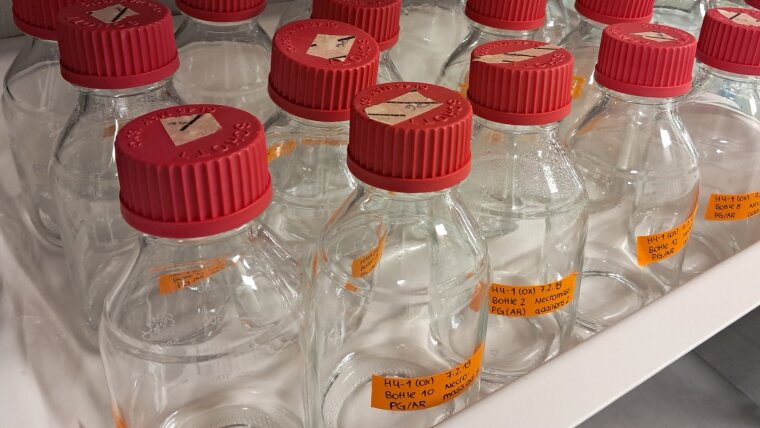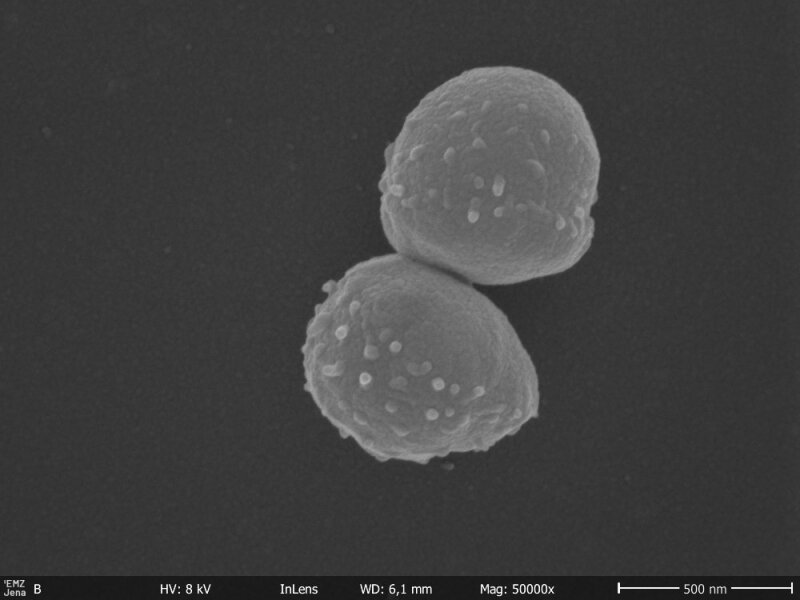
- Life
- Research
Published: | By: Sandy Ludwig
A research team from the Cluster of Excellence »Balance of the Microverse« at the University of Jena has, for the first time, systematically enriched a broad range of groundwater bacteria from the traditionally culture-intractable Candidate Phyla Radiation. The study, published in the journal Microbiome, revealed a surprising adaptability of this bacterial group.
Bacteria of the Candidate Phyla Radiation (CPR) are among the most widespread yet least explored microorganisms in groundwater. These bacteria make up as much as 50 percent of the bacterial community, and belong to a group that is difficult or even impossible to cultivate. Attempts to cultivate these bacteria have proven challenging, as their populations often fail to survive under laboratory conditions.
A team led by junior research group leader Dr. Martin Taubert from the Cluster of Excellence »Balance of the Microverse« at the University of Jena has now identified conditions under which representatives from six classes of the CPR can be enriched in the laboratory. This made it possible to show that these microbes are far more flexible than previously assumed and can persist under different nutrient conditions.
New insights into the lifestyle of CPR bacteria
Beyond methodological advances, the study also yielded new biological observations. CPR bacteria grow not only under low-oxygen conditions but also in oxygen-rich environments. Complementary genome analyses further revealed that many representatives of this group possess genes for oxygen-dependent metabolic processes. This challenges the long-standing view that CPR bacteria are restricted to an anaerobic, fermentative lifestyle.
»As these bacteria are so abundant and live in close association with other microorganisms, they are likely to have a strong influence on groundwater communities,« explains Dr. Martin Taubert. »Understanding how their activity affects key ecological processes in groundwater requires the ability to enrich them in the laboratory—an essential starting point for further research.«
Foundations for future research
The study highlights the importance of focusing on microorganisms that are difficult to access. Many key ecosystem functions depend on microbes that have so far been difficult to investigate in the laboratory. With the newly identified enrichment conditions and the first biological insights into CPR, future research can systematically build on these findings. In the long term, this will help to better understand central ecological processes in groundwater.
Scanning electron microscope image of tiny cells from groundwater samples.
Image: Martin Westermann, Susanne LindeOriginal publication:
Gabashvili, E., Küsel, K., Pratama, A.A. et al. Growth of candidate phyla radiation bacteria in groundwater incubations reveals widespread adaptations to oxic conditions. Microbiome 13, 224 (2025). https://doi.org/10.1186/s40168-025-02244-1External link
